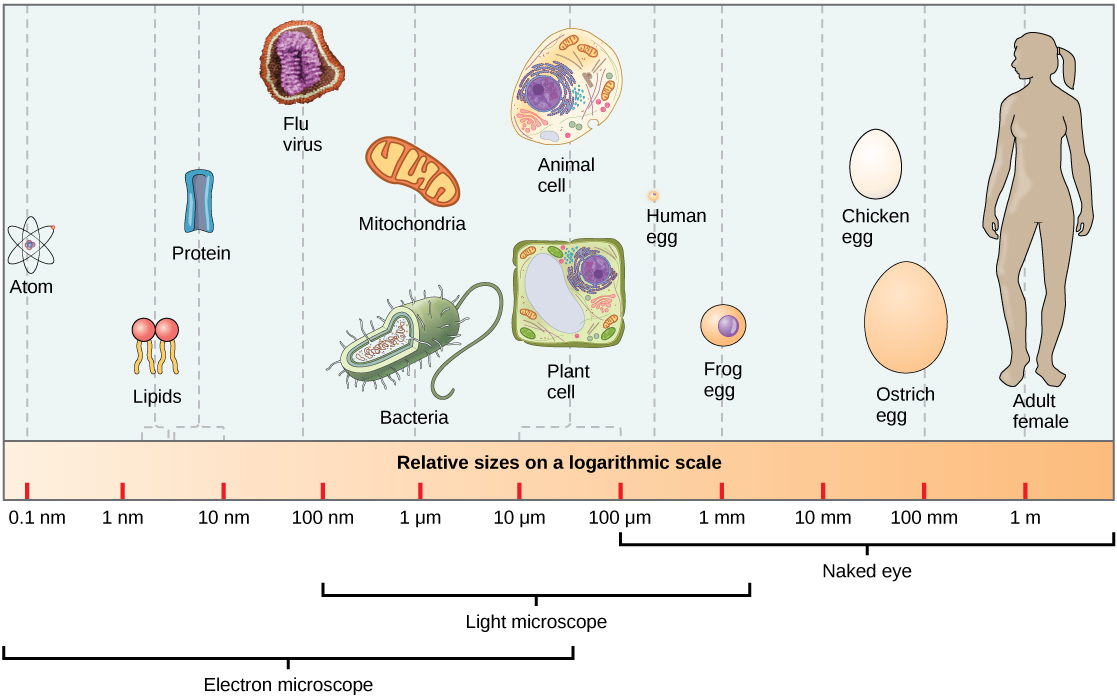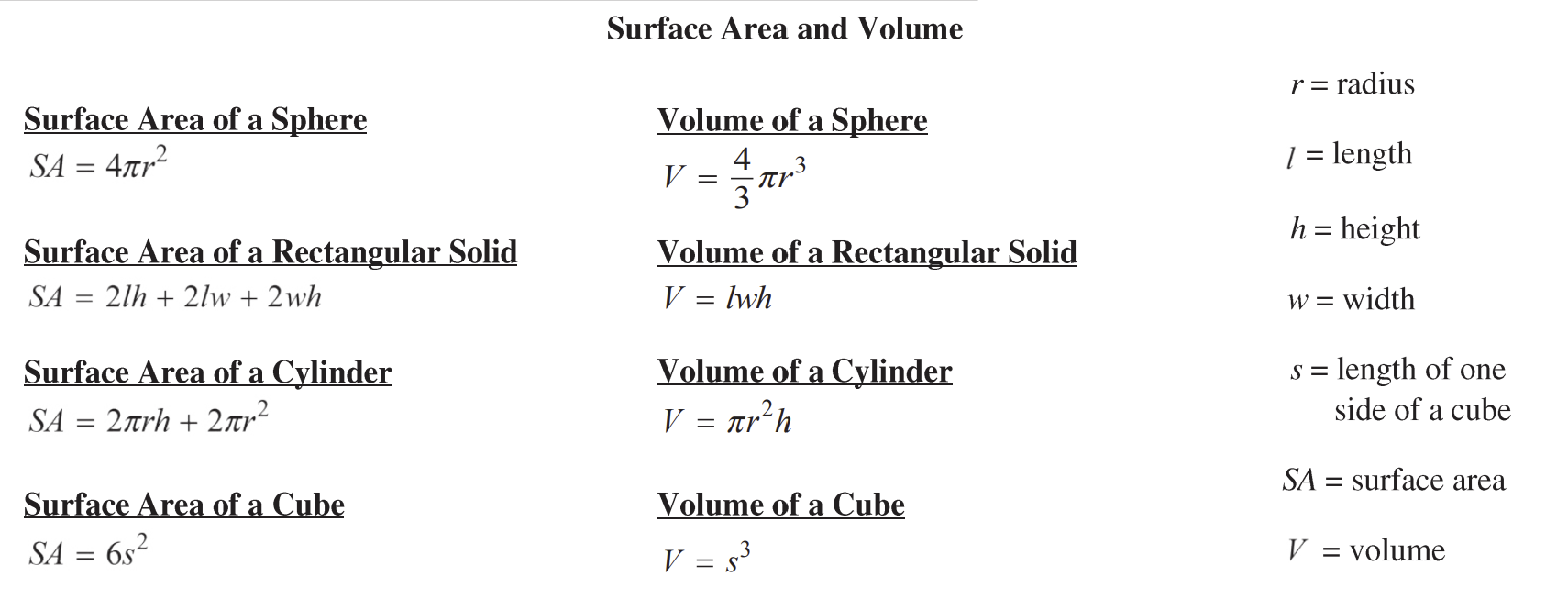Haseung Jun
Tejas Bhartiya
AP Biology 🧬
358 resourcesSee Units
Comparative Cell Size
🦠 Cells, as you all know, are incredibly tiny. The cell needs to maintain a small size in order to have the maximum amount of space for the transfer of nutrients and waste (surface area) with the smallest volume of cell. The reason for this is as the volume increases, the cell will need more and more nutrients to enter, and the higher the surface area, the more nutrients can enter.

Image courtesy of Wikimedia Commons
The greater the surface area to volume (SA/V) ratio is, the more efficient the cell becomes. When the cell reaches a point where the surface area doesn’t allow enough nutrients to pass that the cell needs it divides. Tissues and membranes that have folds have them to increase the surface area. This surface area to volume ratio is HIGHLY EMPHASIZED by College Board (this means highlight, underline and circle this concept until you can mumble it in your sleep). It's necessary for our biological systems to do what they need to do at an efficient rate.
The equation for this ratio is very straightforward and can be found on your Equation Sheet for the AP Exam.

Image courtesy of CollegeBoard
Cell Size
As you'll see, a constant concept in biology is membrane surface area to volume ratio. This is because everything happens within the membrane. ATP synthesis happens on the membrane for the mitochondria and chloroplast and transport happens on the plasma membrane. So a requirement for a plasma membrane is to have a large surface area. But this limitation can make cell size small. Smaller cells usually have a better surface area to volume ratio and as the cell gets bigger, this ratio decreases. This can affect the rate of anything, from heat exchange to ATP synthesis.
Browse Study Guides By Unit
🧪Unit 1 – Chemistry of Life
🧬Unit 2 – Cell Structure & Function
🔋Unit 3 – Cellular Energetics
🦠Unit 4 – Cell Communication & Cell Cycle
👪Unit 5 – Heredity
👻Unit 6 – Gene Expression & Regulation
🦍Unit 7 – Natural Selection
🌲Unit 8 – Ecology
📚Study Tools
🧐Exam Skills

Fiveable
Resources
© 2025 Fiveable Inc. All rights reserved.